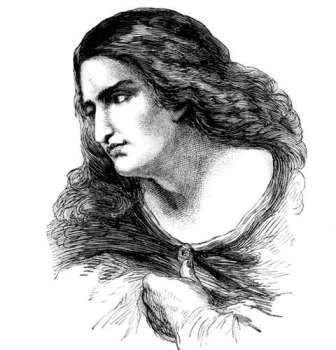Philip
 Philip is listed as one of Jesus' apostles in all four
apostolic lists: Matthew, Mark, Luke, and Acts. He plays the
largest role in John and appears little in the other
gospels. The name Philip means "lover of horses." Writings
attributed to Philip the Apostle played an important role in
the development of early Christian Gnosticism. Gnostic
Christians cited Philip's authority as justification for
their own beliefs via the apocryphal Gospel of Philip and
the Acts of Philip.
Philip is listed as one of Jesus' apostles in all four
apostolic lists: Matthew, Mark, Luke, and Acts. He plays the
largest role in John and appears little in the other
gospels. The name Philip means "lover of horses." Writings
attributed to Philip the Apostle played an important role in
the development of early Christian Gnosticism. Gnostic
Christians cited Philip's authority as justification for
their own beliefs via the apocryphal Gospel of Philip and
the Acts of Philip.
Philip is described in the Gospel According to John as
being skeptical at first about following Jesus, only
agreeing to do so after Nathanael tells him the Jesus is the
Messiah. Philip is depicted as pragmatic other times as well
and he is the one approached by Greeks seeking to speak with
Jesus. It is possible that Philip was originally a follower
or disciple of John the Baptist because John depicts Jesus
calling Philip out of a crowd attending John's baptisms.
One Christian legend says that Philip and Bartholomew
were crucified by the pagan governor of a city in Phrygia
after he killed a serpent, but an earthquake caused the
people to demand the release of the two apostles.
Bartholomew survived, but Philip didn't make it. Another
story says that Philip married, had children, and was buried
in Hieropolis with this daughters.
 Philip is listed as one of Jesus' apostles in all four
apostolic lists: Matthew, Mark, Luke, and Acts. He plays the
largest role in John and appears little in the other
gospels. The name Philip means "lover of horses." Writings
attributed to Philip the Apostle played an important role in
the development of early Christian Gnosticism. Gnostic
Christians cited Philip's authority as justification for
their own beliefs via the apocryphal Gospel of Philip and
the Acts of Philip.
Philip is listed as one of Jesus' apostles in all four
apostolic lists: Matthew, Mark, Luke, and Acts. He plays the
largest role in John and appears little in the other
gospels. The name Philip means "lover of horses." Writings
attributed to Philip the Apostle played an important role in
the development of early Christian Gnosticism. Gnostic
Christians cited Philip's authority as justification for
their own beliefs via the apocryphal Gospel of Philip and
the Acts of Philip.